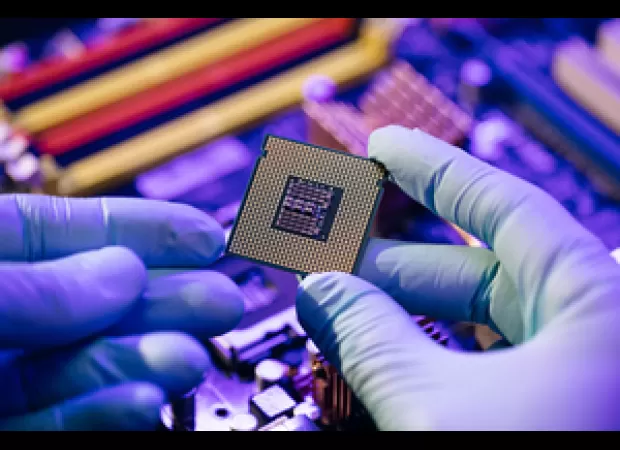IIT Bombay and TCS are working together to create India's first quantum diamond microchip imager.
IIT Bombay and TCS partner to create India's first Quantum Diamond microchip imager, enhancing semiconductor chip quality testing.

In a recent announcement, the Indian Institute of Technology Bombay revealed a new partnership with Tata Consultancy Services. Together, they will be working on the development of India's first Quantum Diamond microchip imager. This advanced sensing tool is set to revolutionize the testing of semiconductor chips.
Over the course of the next two years, experts from TCS will join forces with IIT Bombay's PQuest Lab to create this cutting-edge tool. Their collaboration is expected to not only reduce the potential for chip failures, but also enhance the efficiency of electronic devices. The goal is to improve the quality control of semiconductor chips, resulting in more reliable, safe, and energy-efficient electrical products.
Kasturi Saha, Associate Professor in the Department of Electrical Engineering at IIT Bombay, expressed her excitement for this partnership. She stated, "PQuest group at IIT Bombay is thrilled to work with TCS on developing a quantum imaging platform for nondestructive examination of chips. Leveraging our extensive expertise in quantum sensing, we aim to drive innovation and transform various industries such as electronics and healthcare. Our ultimate goal is to propel India forward through groundbreaking technologies and products."
This collaboration between TCS and IIT Bombay is in line with the National Quantum Mission, a government initiative aimed at positioning the nation as a global quantum technology leader. The development of an indigenous Quantum Diamond microchip imager, which integrates quantum diamond microscopy with AI/ML-powered software imaging, will further accelerate India's progress in the quantum revolution.
Harrick Vin, Chief Technology Officer at TCS, emphasized the importance of this project. He stated, "The Second Quantum revolution is moving at an unprecedented pace, making it crucial for us to combine our resources and expertise to build cutting-edge capabilities in sensing, computing, and communication technologies."
As semiconductor technology continues to advance and chips become smaller in size, traditional sensing methods are no longer sufficient in detecting anomalies. This is where the Quantum Diamond microchip imager comes in. By utilizing the defects in a diamond's structure, known as Nitrogen-Vacancy centres, and other hardware and software, it will be able to detect and characterize anomalies in semiconductor chips with precision and accuracy.
The potential applications of this technology are vast and diverse. It will have a significant impact on microelectronics, biological and geological imaging, as well as fine-scale imaging of magnetic fields. With this groundbreaking collaboration between TCS and IIT Bombay, India is poised to make significant strides in the field of quantum technology and establish itself as a global leader.
24 Views






